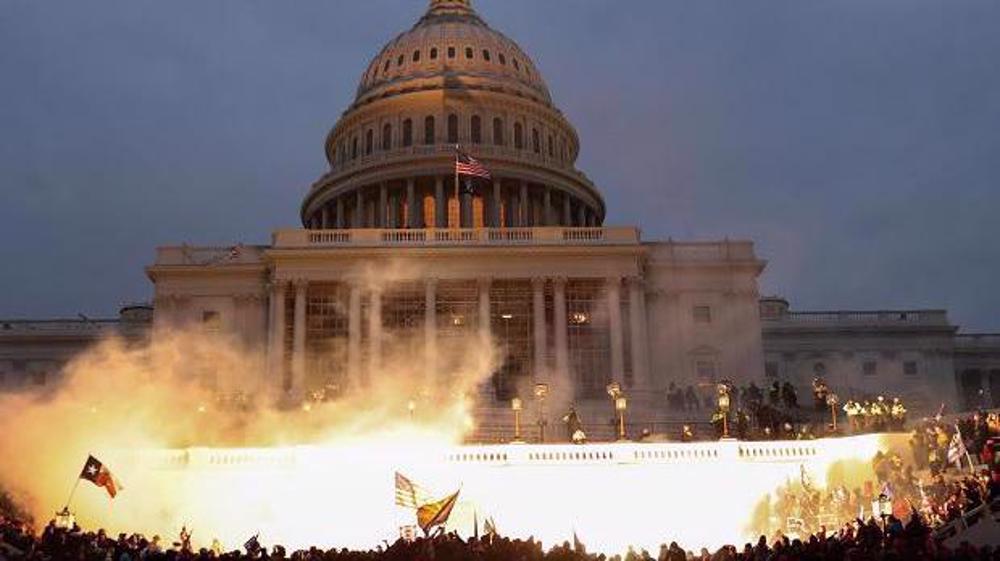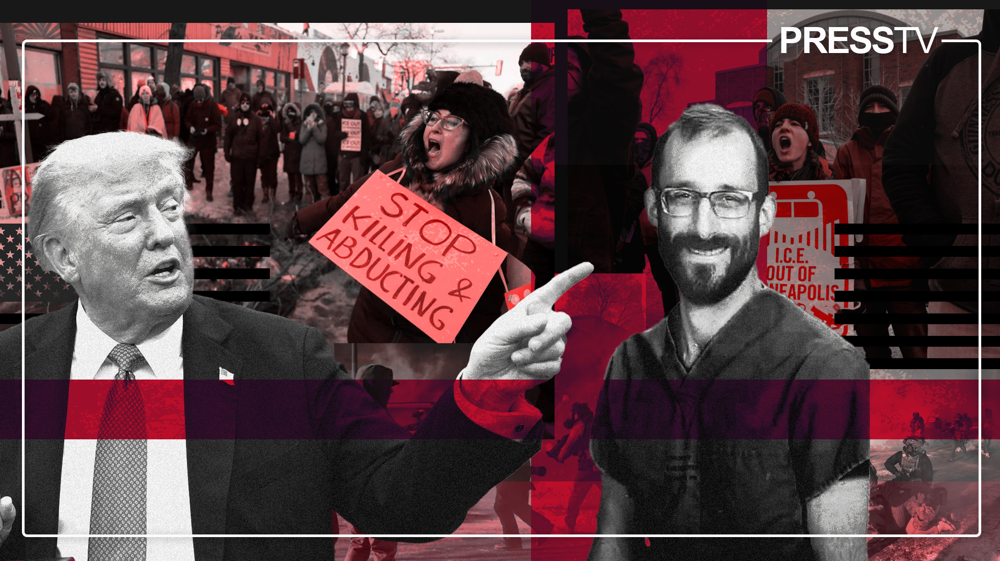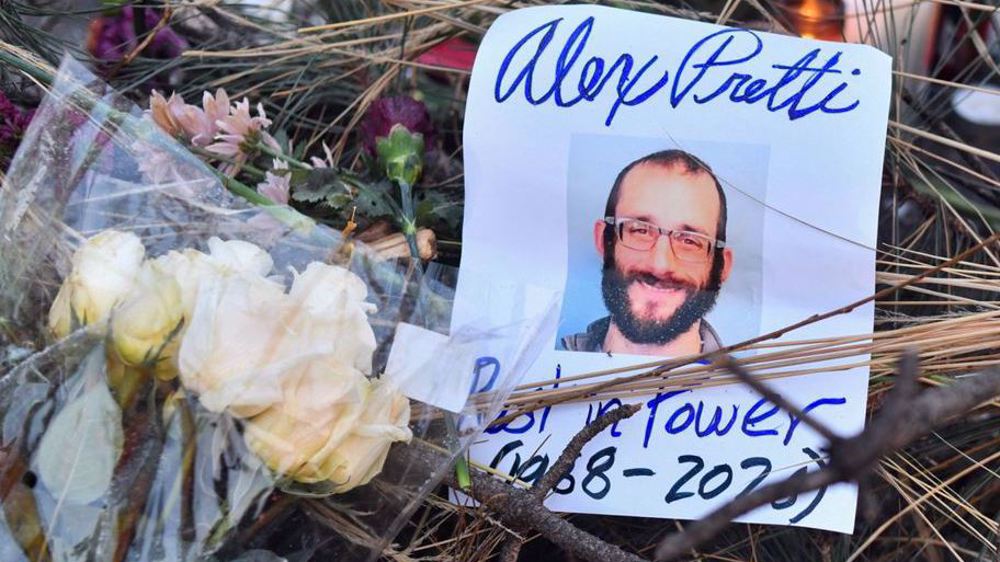Neoliberal institutionalism under a broken hegemony
By Mehrdad Torabi
It is not that if mankind in its international relations has failed to achieve the rational good it must either have been too stupid to understand that good or too wicked to pursue it, rather relative gains from cooperations, in a world dominated by imperialist agendas, will always be disproportional enough to refute the prisoner’s dilemma.
The golden years were 1990 to 2004, but then in 2005, the order started going south. Iraq turned into a disaster, Afghanistan, which first looked like a success to serve the interests of the US, as well, the international economy almost went off the cliff in 2008, the Euro crisis happened shortly after, and so on. In recent years, many people believed there was a bug in the system; they thought the problem was Donald Trump, and now that they have gotten rid of him and have put someone else—like Joe Biden—everything will go back to normal.
Donald Trump was elected, in particular, and populism was centered around socioeconomic issues, in general, conversely, as a reaction to, and by running against, the liberal international order. "I don't see that is a realistic political position within the US," Michael Every, the Head of Financial Markets Research for Asia-Pacific, emphasized in ABARES 2017 conference, "to go back to completely free trade." With China on the rise, trade deficits can reduce employment and income. “If you are importing consumer goods, every dollar you spend is a dollar you could be spending at home,” he said.
Pursuing protectionist policies, the US imposed tariffs on imports, withdrew from international setups like TPP, and so on, but make no mistake; Trump was not the problem, but a manifestation of the problem. The problem is idealism; liberal democracy has proved not to be the end of history, for as soon as the attempt is made to practice ideals in the political battleground, selfish vested interests of the main actors are exposed from behind the veils of those abstract principles; a reason for this liberal democratic recession, therefore, seems to be the system itself that is self-destructive.
A realist argument is that, firstly, liberal democracy doesn’t attract so many people today. In fact, as Zselyke Csaky points out, “a growing number of leaders in Central and Eastern Europe have dropped even the pretence of playing by the rules of democracy.” We observe today “a stunning democratic breakdown in the 29 countries covered by Nations in Transit. There are fewer democracies in the region today than at any point since the annual report was launched in 1995.”
Secondly, dominant powers, having the force to impose ideations upon others, have become like crusader states, fighting endless wars. The United States of America has been at war for two out of every three years since the Cold War ended. Setting aside hypocrisy, which I assume at least for a scientific analysis we must do, it becomes facile to realize that America today is a highly militarized state addicted to war. No wonder to create a liberal international order and reform the world in their own image, liberal democratic crusaders have formed an alliance of balancers against their offenses.
Thirdly, the crusading sole pole has ended up poisoning relations with other major powers in the world. I can tell that in the face of color revolutions, as well as Nato/EU expansion, pushing towards Russian borders, Russians are not feeling very happy. Chinese are not pleased either to see the US interfering with their politics; in this regard, their concerns over protests in Hong Kong fueled by Americans is not merely illogical.
Fourthly, the order clashes with nationalism undermining sovereignty and national identity. Powerful institutions, like the European Union, with a lot of authority to make decisions raise many questions about input and output legitimacy. Decisions about Britain’s future, on the other hand, should be made in London, and not in Brussels. As regards national identity, free movement of persons as well as taking in refugees in the age of exclusionary nationalism are among matters that have exhausted liberal internationalism to a great extent.
Five is the problem of hyper globalization. We have moved from a globalized system to a hyper globalized system, and now it is much easier to move capital around the world, but as a result, many have lost jobs in the Western world. The liberal international order was undermined inside countries like the United States and Britain because of the economic consequences of hyper globalization, and that those problems have led to significant political difficulties leading us to the final but very critical issue that liberal internationalism has yet to face: The rise of China.
“Obviously, we must engage China,” Senate Foreign Relations Committee Chairman John Kerry said in a major speech on China policy at the Center for American Progress in Washington, stressing the US must “fully integrate China into the global community.” Integrating China into the liberal world order undermines unipolarity. World’s structure in favor of Uncle Sam towards expansion being transformed to multipolarity implies both the end and the beginning of a new cycle. A liberal international order may only spread in a unipolar order, for the uni-pole then does not have to worry about the balance of power; once the structure is changed into multipolarity, however, the balance of power politics will ensue. With China looking for high value-added industrial products, the US appears to be moving back to the pre-World War II pattern of thinking about trade. In such an order, the West and the Rest will try to establish their own protected orders. Just recently, Asia-Pacific nations signed an inclusive trade deal with China, and Joe Biden confirmed that “the United States must align itself with other allies so that they write the rules governing global trade—and not China.” Alliance structures will be formed sooner or later while economic relationships will be all tied up with security competition; such order will be reminiscent, in some ways, of the Cold War. Of course, as was true in the Cold War, there will be an international realist order as well: that of proliferation control regime through which the Chinese, the Russians, and the Americans will work together at the international level. However, US-led and China-led orders will matter the most, as was the case during the Cold War.
That “unipolar moment” upon which the US had devised its main strategy in the post-Cold War era is over. Utopians have failed to dominate the world, for everything will happen as it always has.
Mehrdad Torabi is an international relations expert from the University of Bologna, Italy, He is a writer of political commentaries and analyses.
(The views expressed in this article do not necessarily reflect those of Press TV.)
Israeli woman shocked after being listed as ‘dead’ in recent Iran riots
Israel clearing northern Gaza land for settlements: Report
Gaza deadliest place for journalists and aid workers: UNRWA chief
Israel claims body of final captive recovered from Gaza
VIDEO | Armed gangs in Gaza at center of brewing power struggle over civil administration
3,500 Iranian cultural, media figures support Leader amid Trump’s threats
Hezbollah chief: New US-Israeli war on Iran will set entire region ablaze
UAE says will not allow its airspace, territory to be used for attacks on Iran










 This makes it easy to access the Press TV website
This makes it easy to access the Press TV website